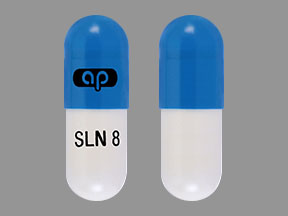
Rapaflo Coupons & Savings Card – Discount Prices from $43.82
Brand for: Silodosin
My prescription
Edit
8MG, Silodosin (90 Capsules)
Select pharmacy

CVS
$52.78
COUPON PRICE
Albertsons
$43.82
COUPON PRICE
Walgreens
$47.70
COUPON PRICE
Walmart
$62.06
COUPON PRICERapaflo savings card
Show this card to your pharmacist
Albertsons
$43.82
BIN
ID
PCN
GRP
019876
LH048B1AC3
CHIPPO
LHX
Powered by
Related alpha blockers prescriptions
More prescriptions for benign prostatic hyperplasia
Related alpha blockers prescriptions
More prescriptions for benign prostatic hyperplasia
Price history for Rapaflo (brand) & Silodosin (generic)
90 Capsules, 8MG
Average retail price for Rapaflo
Average retail price for Silodosin
Average SaveHealth price for Silodosin
Our price history data is based on aggregated prescription data collected from participating pharmacies in America. Our prescription data updates daily to reflect the latest price changes. If you notice a missing data point, it means there wasn't sufficient data available to generate a monetary value for that date.
Over the last 12 months, the average discount price of Rapaflo is $31.25 using the SaveHealth savings card. That's an average savings of 90.19% on Rapaflo with our discount card.
*Retail prices are based on pharmacy claims data, and may not be accurate when we don't have enough claims.
Rapaflo (Silodosin) dosage forms
Dosage Quantity Price from Per unit 4MG 30 Capsules $14.31 $0.48 4MG 90 Capsules $39.99 $0.44 8MG 90 Capsules $43.82 $0.49 8MG 30 Capsules $18.90 $0.63
| Dosage | Quantity | Price from | Per unit |
|---|---|---|---|
| 4MG | 30 Capsules | $14.31 | $0.48 |
| 4MG | 90 Capsules | $39.99 | $0.44 |
| 8MG | 90 Capsules | $43.82 | $0.49 |
| 8MG | 30 Capsules | $18.90 | $0.63 |
Is Rapaflo the same as Flomax?
Rapaflo (silodosin) and Flomax (tamsulosin) are not the same, but they are both medications used to treat benign prostatic hyperplasia (BPH). They belong to the same class of drugs known as alpha-blockers, which help relax the muscles in the prostate and bladder neck to improve urine flow. However, they contain different active ingredients and may have different side effect profiles. It is important for patients to follow their healthcare provider's recommendations when choosing between these medications.
What is the drug Rapaflo used for?
Rapaflo is used to treat the symptoms of benign prostatic hyperplasia (BPH), which is an enlarged prostate. It helps to improve urination in men with this condition.
Does silodosin stop you from ejaculating?
Yes, silodosin can cause a condition known as retrograde ejaculation, where semen enters the bladder instead of being expelled through the urethra during ejaculation. This can result in little to no semen being released during orgasm. This is a known side effect of the medication.
What happens when you stop taking silodosin?
When a person stops taking silodosin, the symptoms of benign prostatic hyperplasia (BPH) that the medication was managing may return. These symptoms can include difficulty urinating, increased frequency or urgency of urination, and a weak urine stream. It is important for the individual to consult with their healthcare provider before discontinuing the medication to discuss any potential effects and alternative management options.
What is the generic for Rapaflo?
The generic name for Rapaflo is silodosin.
